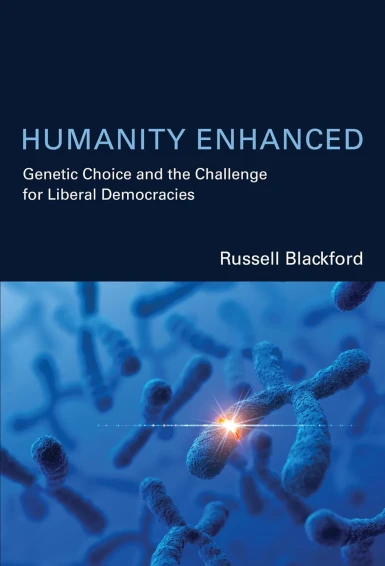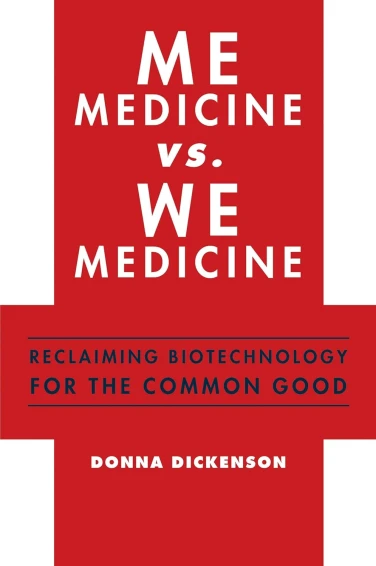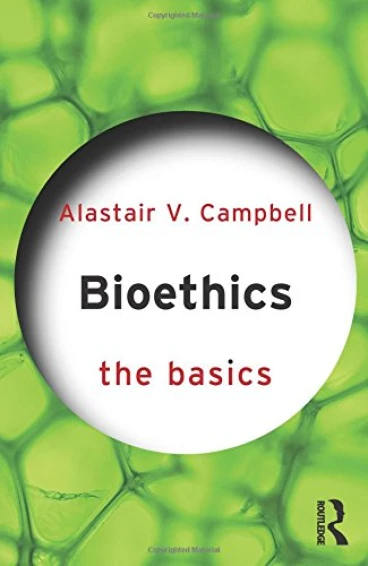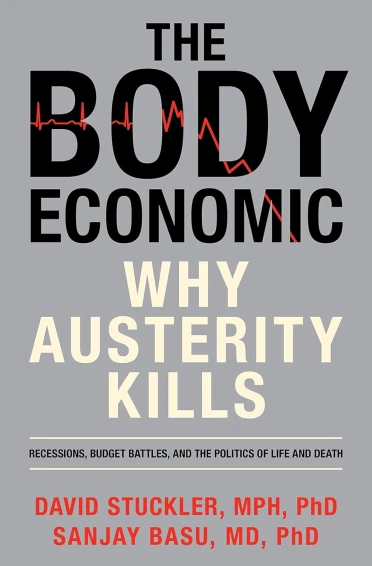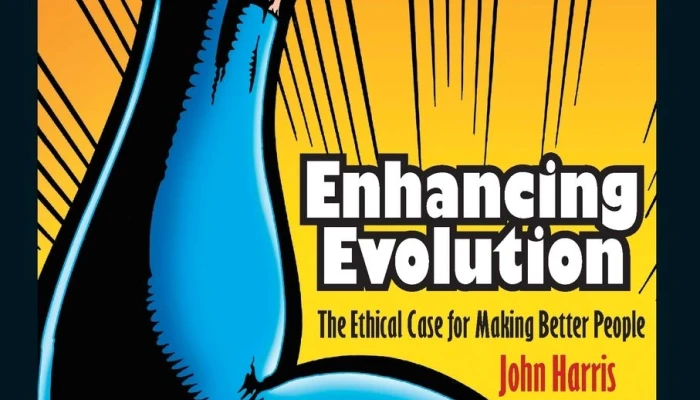
By John Harris
ISBN 978-0-691-12844-3
Far from a tenebrous read, Professor John Harris’ most recent book, Enhancing Evolution: The Ethical Case for Making Better People makes a strong and engaging contribution to the conversation concerning human enhancement. This reviewer found the book’s key strength to lie in raising serious questions as to what constitutes enhancement to then generate further study into the topic.
The book evolved from a series of public lectures delivered at the James Martin Institute for Science and Civilisation at Oxford University. Harris is a well known, liberal academic and advocate towards advances and developments in science and technology. Therefore it will come as no surprise to many that he adopts a positive and permissive approach to human enhancement. Indeed, many of the reoccurring points Harris makes in the book follow the line of “If it wasn't good for you, it wouldn't be enhancement”. This quote encapsulates the main premise of the book. Human enhancement is good for humanity, therefore it should be morally permissible and, taken to its ultimate conclusion, may even be obligatory.
Replacing Darwinian evolution
Harris has beyond doubt provided a useful core text on this very cogent subject. With an academic background in law and philosophy, the book provides a rigorous philosophical exploration and defence in favour of enhancement. It is the author’s positioning of the enhancement question within the context and understanding of evolutionary change which is perhaps one of the constructive aspects of the book. It assists the reader to readily understand the nature of the change enhancement presents to humanity.
In Harris opinion, Darwinian evolution which was brought about by natural selection, will be replaced by a deliberate and chosen process of selection. Consequently, the effects of this new form of selection will take much more quickly in comparison to the million of years of Darwinan evolutionary change. Harris sees this new process of evolutionary change as replacing “natural selection with deliberate selection, Darwinian evolution with ‘enhancement evolution’”. (p, 4).
Succinctly, the books offers three main arguments. First, there is no sound reason for drawing a distinction between enhancement and measures such as vaccinations or preventative measures against cancer. Both grant us and ‘enhance’ us with abilities that we lack.
Secondly, there is no sound reason for seeking to make a distinction between enhancement and good parenting skills, manifested say in school selection and genetic enhancement. Harris’ reasoning is based on the following premise. Those parents in the developed world, ’rich countries’ or who are simply ‘rich’ are not prohibited from using the advantages available to them to choose the best for their children even though there are still families in other parts of the world who do not have access to the same kind of resources and advantages. Thus, access to and use of enhancement technologies such as genetic modification should not be treated any differently in Harris’ eyes.
Thirdly, whilst there is the need for risk analysis which takes into consideration harmful side effects and dangers of enhancement, these factors should not prohibit enhancement. They should help to establish a context for careful consideration of the ramifications of enhancements but they should not halt completely the advances in enhancement to make better humans.
It is this evolutionary development to become better humans which drives Harris’ thesis. The book commences by addressing the questions of why enhancement is such a positive development to embrace and the consequent moral duty which follows from such a standpoint. Interestingly, whilst the author is strong on the philosophical perspective of the issue, scant regard is given to the practical difficulties associated with adopting a permissive approach to enhancement. What are the possible harms which could emerge should human enhancement be introduced to a community? What, if any, could be the unforeseen consequences of introducing an enhanced race? How would the enhanced and unenhanced live alongside one another?
Whilst these questions are touched upon by the author at points throughout the book, no further attention is paid to them. The issues are almost side stepped in favour of dismissing them as issues which will addressed and sorted out as part of the process; nothing more to worry or be concerned about. Despite this weakness, it is probably one of the points which helps to define the book’s value. It is first and foremost a philosophical response to the issue of human enhancement. Whilst the book is lucid and easily accessible, requiring no previous background to ethical and philosophical study in order to understand the author’s line of argument, it remains focused on provide a strong case for human enhancement. In so doing, it avoids engaging in arguments over matters such as risk analysis, which could be attributed to other topics ranging from immunisation to mobile phone usage, and seeks to address head on the philosophical questions of enhancement.
That said, by the time the reader reaches the half way point of this book, much of Harris’ thesis has been laid out leaving the rest of the book to reiterate and at points merely repeat what has previously been stated. Whilst each of the chapters may try and address a different aspect of the enhancement debate, they invariably end up driving the same point home.
Therapy vs enhancement
The many forms of enhancement are addressed by Harris in the book including genetic, mechanical and chemical. In each case, the permissive liberal lens which Harris adopts is used to explain and expound the reason why such enhancements would and do make our lives better and considers the arguments against them. At this point of the discussion Harris ably and skilfully pulls apart the common “therapy versus enhancement” distinction. Whilst one can see how the thinking behind this distinction came about and the promotion of it through the US President’s Council on Bioethics report ‘Beyond Therapy’, it has quickly become recognised by many in the field as a flawed and unhelpful distinction with which to use. In the hands of Harris, with relative ease and skill he swiftly pulls this line of argument apart and exposes its flaws. In response Harris argues for a moral judgements to be based on “a rejection of harm and an acceptance of benefit whether called therapy or enhancement” , an approach which has a certain congruency with the thinking of Professor ter Meulen’s approach of goal rationality and value rationality approach in this regard. Whilst the practical difficulties and implications remain, these philosophical approaches certainly offer a somewhat more rigorous line of thinking in comparison to the therapy/enhancement distinction.
Perhaps the most helpful and pertinent chapters of the book for this reviewer were chapters seven and eight. Here the author examines the arguments of Michael Sandel, Leon Kass and Jurgen Habermas against the use and application of enhancement technologies. The author openly writes that he is aware that those who support the arguments of Sandel, Kass and Habermas may not be won over or convinced by his rebuttal. However, for those who wish to continue to embrace the “wisdom of repugnance” Harris believes his rebuttal constitutes a logical and reasoned response. This reviewer was looking forward to reading Harris’ response to these three philosophers and was somewhat disappointed. At points, Harris’ rudeness comes through all too strongly and points which could be made far more concisely without any of the author’s pride and self righteousness thrown in. One understands the need for constructive criticism and debate but constructive being the key word.
One of the benefits of the chapters though are that they help to illuminate the fact that there appears to be two distinct approaches to engaging with the enhancement question. First, one can take the more negative reaction to the idea of enhancement to be decisive and then seek to construct a theory around this. On the other hand a more utilitarian/consequentialist approach could be adopted in order to formulate a response and way forward from here.
The concluding chapters examine the issue of the embryo (particularly with regard to the use of it in embryonic stem cell research) and the obligation to pursue and participate in research. These are questions which Harris has written on previously, not least in his chapters in the recent OUP publication Global Bioethics which he also edited. A review of this book can be found here . Consequently, to anyone who has read any of Harris’s previous work, the main premise of these chapters will be familiar. The reason for including this material in the closing chapters of a publication on enhancement may therefore seem strange to some. However, such a move I think helps to reference the enhancement question in the wider field of study. Enhancement is not some random new question which has arisen on its own and therefore requires answering on its own, but in many respects it is related to and has implications on other thematic issues related to with life and death, research ethics, ‘personhood’ including the perennial question of the moral status of the embryo and consequent implications on research.
Conclusion
In conclusion, Enhancing Evolution has to be acknowledged as a well crafted book which clearly lays out the philosophical arguments in favour of enhancement. In one volume, the reader is presented with a clear and easy to understand thesis for why enhancement is good for humanity and should be embraced. Conversely, the book could have been shorter if it were not for the fact that these arguments are repeated a little too often.
Those coming to the book with an open mind may well find Harris’ line of argument convincing enough to agree with him that there is an ethical case for enhancing humans. For those reading the book who are somewhat cautious or hold strongly to the opinion of the need to prohibit enhancement, they may find the book frustrating, weak and inaccurate in its portrayal of opposing points of view. Nevertheless it still demands to be read and engaged with. If there are two key strengths to the book, the first is found in the fact that it encapsulates the case for enhancement.
The second point is found in its ability to provoke more robust engagement by those of us who are somewhat more cautious than Harris in his permissive approach to enhancement. If anything as a reviewer of the book, I was left neither convinced nor unconvinced of the ethical case of making better people but rather spurred on to engage with the subject matter further. As with any good court case, the case for the defence has been made. It is now time for the prosecution to take its stand and deliver its evidence in order for both sides to be considered.
Taking it further.....
If you are interested in the enhancement debate, why not read the BioCentre review of Dr. Pete Moore's book Enhancing Me: The hope and the hype of enhancement.




